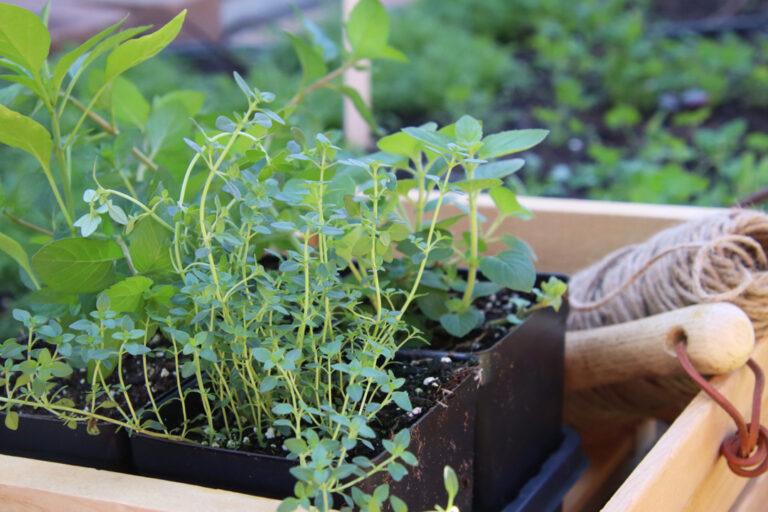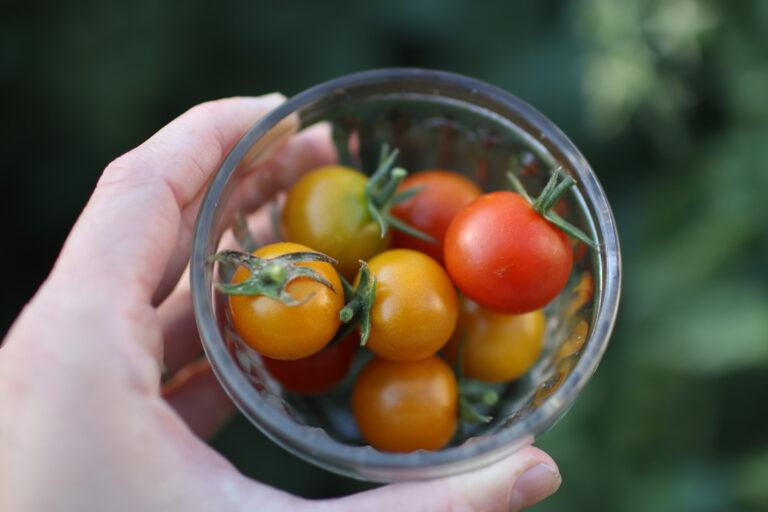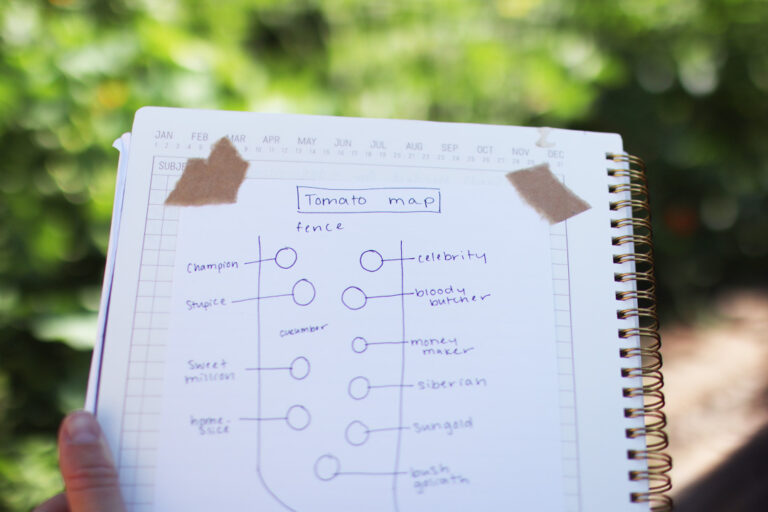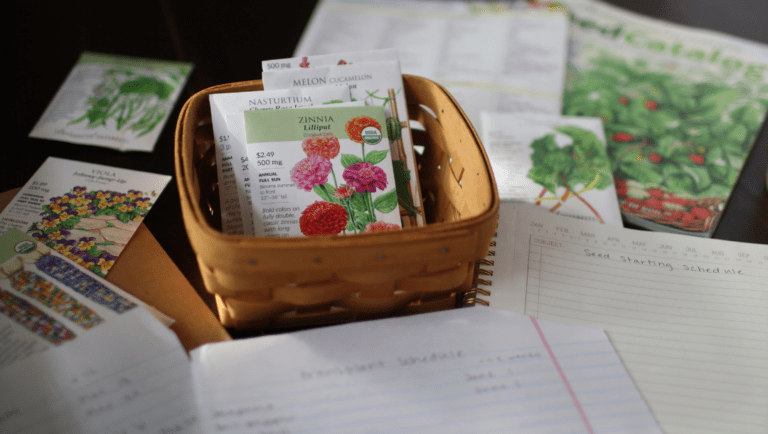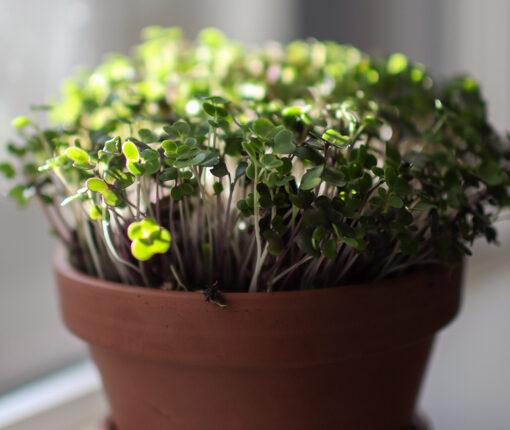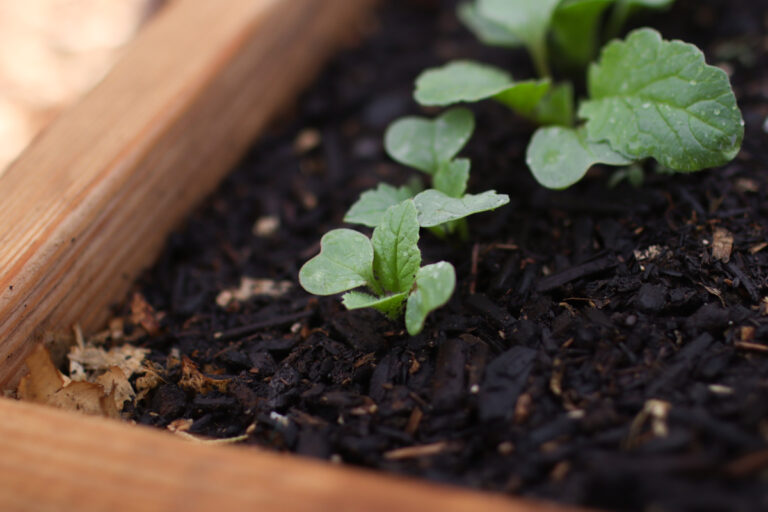9 Tips for New Gardeners
Here you’ll find all of my best tips for new gardeners that I wish I had known my first year growing my own food!
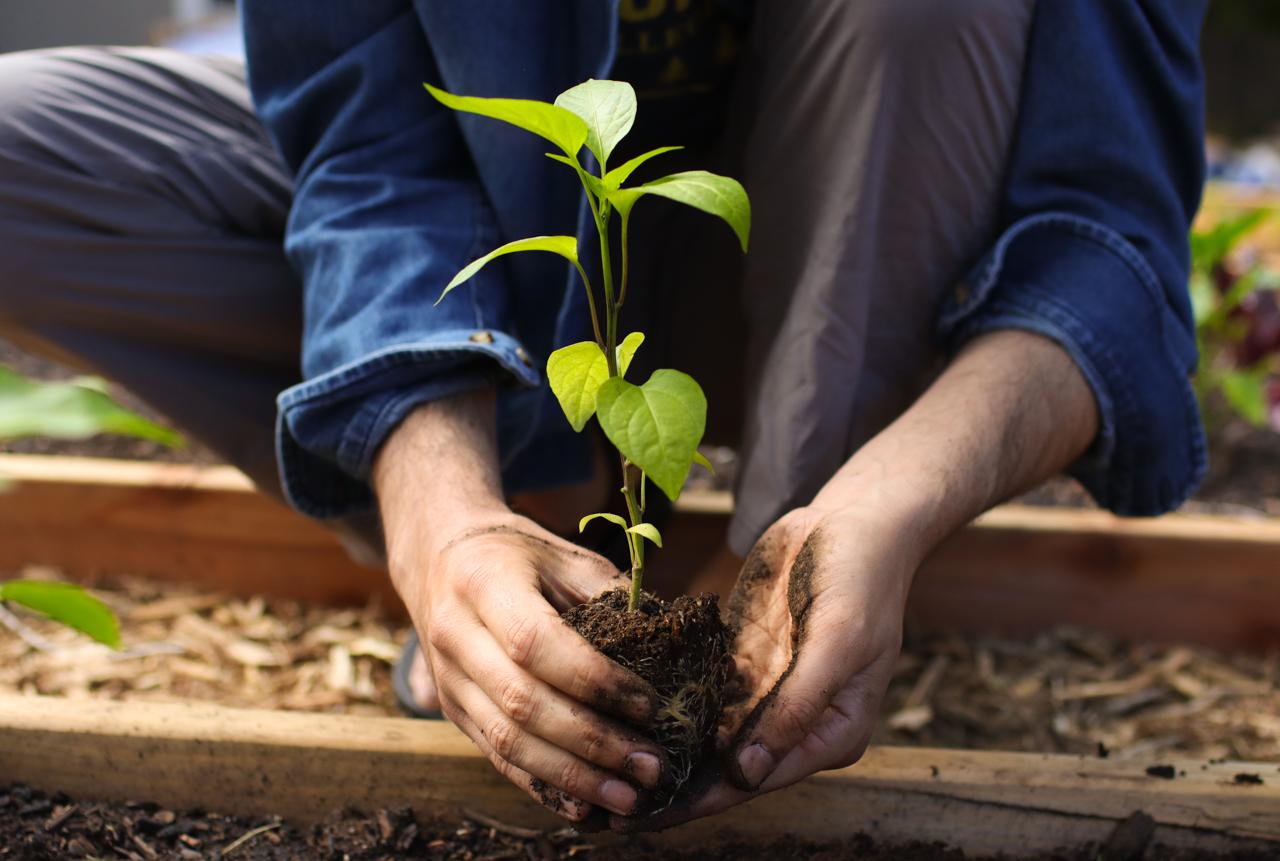
Being a new gardener can be very overwhelming. There are so many details to remember, things to research, problems to troubleshoot, and a myriad of different opinions circulating about the best way to do it. All of these can suck the fun out of starting your first garden and make it a place you avoid rather than the sanctuary it should be.
Learning to garden should be fun and exciting! I don’t think I will ever encounter a gardening season that is more fun than my first one. Even though I’ve since had more fruitful seasons and seasons with less hardship, there is nothing like the joy and awe that comes with your first garden.
In hopes of making your first one or two gardening seasons as fun and simple as possible, here are my top tips for beginning gardeners.
This post contains affiliate links. If you make a purchase through the links, I will earn a small commission at no cost to you. As an Amazon Associate, I earn from qualifying purchases. Read my full disclosure here.
1. Invest in Soil Health
This is one of the less romantic and exciting parts of starting a garden, but it’s really critical. You are going to have far greater success in your garden if you start with healthy soil now. If you start with bad soil, you’ll grow a lot of stunted or unsuccessful plants and end up trying to fix your soil later on. It’s easier to just put in the work upfront. You can amend the soil with good-quality compost to get started off on the right foot. I really like giving each plant a little sprinkle of mycorrhizae when I’m planting a new garden to help get it established even faster.
2. Grow Flowers
Flowers aren’t just for beauty and enjoyment, they also serve a critical role in a healthy garden. Those beautiful blooms attract pollinators and beneficial insects that help with pest control. Without enough pollinators, your garden yields will suffer and without beneficial insects, you may struggle with bugs eating your plants.
You don’t have to have a huge flower garden if you don’t want one. Aim to plant one flower plant every 4 feet or so in between your vegetables.
Not sure what to grow? Flowers that are native to your area will grow well and support the ecosystem best. You may also want to grow edible flowers if you find the idea of floral garnishes appealing. If you just want something quick and easy to grow, here are my recommendations:
Want more recommendations? Check out the 15 Best Flowers to Grow for Beginners.

3. Don’t Panic About Pests
The most common issue I see with new gardeners is panic at the first unfamiliar insect they see. They immediately want to spray the plant with a pesticide to kill any bugs. Unfortunately, using pesticides does more harm than good. Pesticides kill soil life, harm beneficial insects, and ultimately make your pest problem worse.
If you have healthy soil, biodiversity, and lots of beneficial and predatory insects (wasps, for instance, kill caterpillars), your garden will be overall fine. If you have verified that the bugs are harmful and you feel it’s becoming an infestation, I recommend removing the bugs by hand if they are large or spraying them off with a hose if they are small, like aphids. Then focus on improving your soil, growing healthy plants, and creating an ecosystem in your garden.
4. Plant the Right Veggies
While some failures are inevitable, you are going to have more fun in your first year of gardening if you have success with at least a couple of things! Learn what the best vegetables for beginning gardeners are here.
It’s also important to grow what you enjoy eating. It will make your garden more enjoyable and prevent food waste. I’ve grown a couple of things that I didn’t like very much and ended up composting a lot of it. That guilt took a lot of the excitement out of the experience. There are good reasons to grow veggies you don’t love, but try to only grow one or two new things and focus the rest of the garden on your kitchen staples.

5. Keep a Garden Journal
This is one of the most helpful things you can do as a gardener! It doesn’t have to be elaborate, but taking notes is going to benefit you for years to come. It’s a really effective way to get better at gardening quickly and learn how to grow in your space specifically. I have a whole blog post about the why and how, but truly, even if it’s just a page a season, keep some sort of garden journal.
6. Take Pictures
This may sound silly, but take a few pictures of your first garden. Take photos of what it looks like, of your harvests, and of the process you are going through. I love looking back on these photos to reminisce and to see how far I’ve come.
7. Embrace Failure
You are probably going to have some failures your first year and every year after that. Sometimes the weather just isn’t good for a specific plant one year or you didn’t get the conditions right for it. It happens even when you’ve been gardening for years. Don’t stress or get frustrated. Just have fun with whatever you are able to harvest and remember that every failure gives you information to learn from for next year!

8. Start a Compost Pile
If you can fit it, I highly recommend starting a compost bin. Composting is very easy and provides you with rich, free soil to feed your garden each season. Homemade compost is the best compost; you have the most information about how it was produced and it’s the freshest, most alive compost you can get. Having a bin will also help you reduce kitchen waste and it’s so satisfying to turn your trash into something so useful! To learn the basics of composting, click here.
If you are gardening in an apartment or community garden and don’t have the space for a compost bin, a lot of gardeners have great success with the Lomi.
9. Know Where to Find Information
I can’t tell you how many times I’ve turned to a quick internet search when I wasn’t sure what was going on. I’ve diagnosed pests, diseases, and nutrient deficiencies in just a few seconds. If you are having problems or don’t know how to do something, try searching the web! There are resources out there that may not give you good information, but I usually click through three or four and make sure they are all saying the same thing. I’ll google “how to harvest chamomile” or “spotted yellow leaves on cucumber plant,” for example.
When you need to talk to a real person, ask your county extension office. This is such a valuable resource that goes underutilized. The USDA has an extension in each state, operated through a state university. Each of those extensions has an office in every county in the state. They offer gardening and preserving classes, lectures, and advice. Simply search “(your county) extension” and it should come up with a website. It’s amazingly helpful and a very trustworthy source; look through their online articles, give them a call or shoot an email to the help desk with your questions.
I truly believe everyone can have a successful garden and everyone will benefit from one. I hope that this list equips you to get started on your first garden and encourages you that it really is easier than it seems. If you have questions or gardening problems you can’t figure out, my inbox is always open and I’ll happily help you out. Happy gardening!


